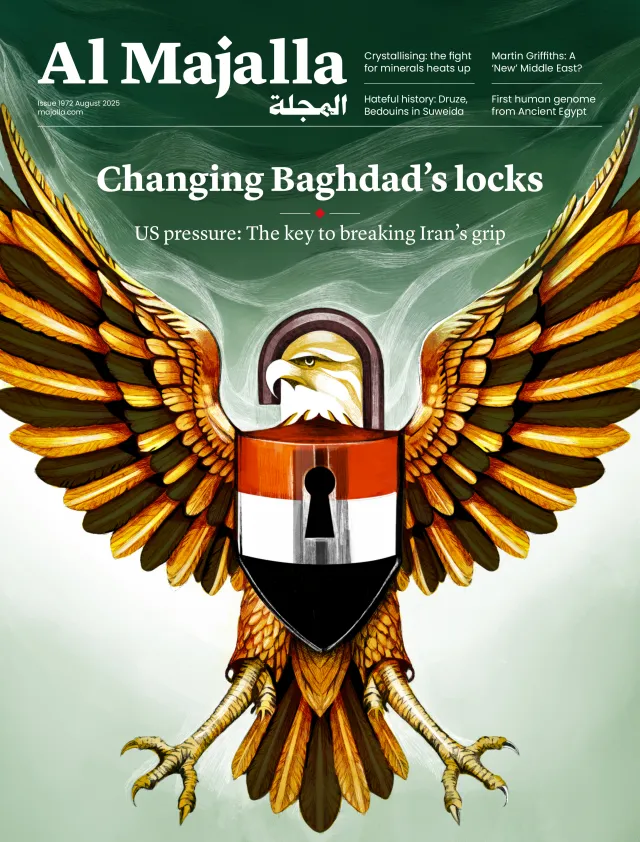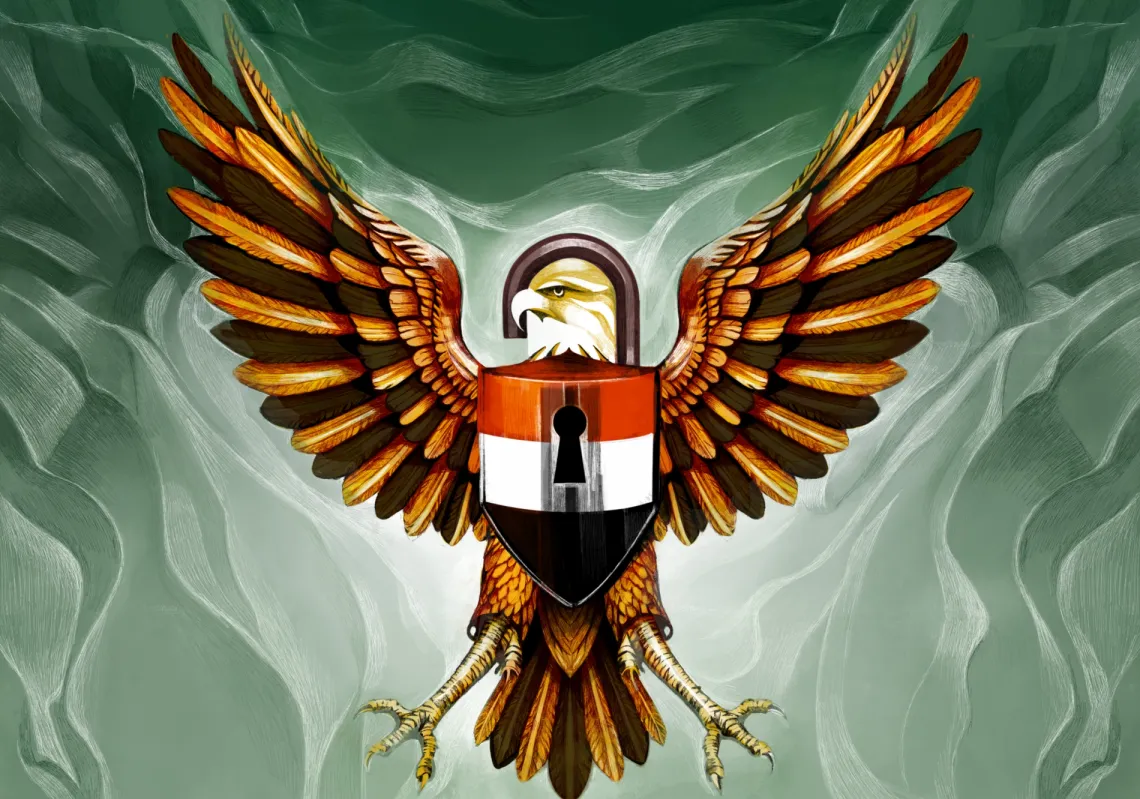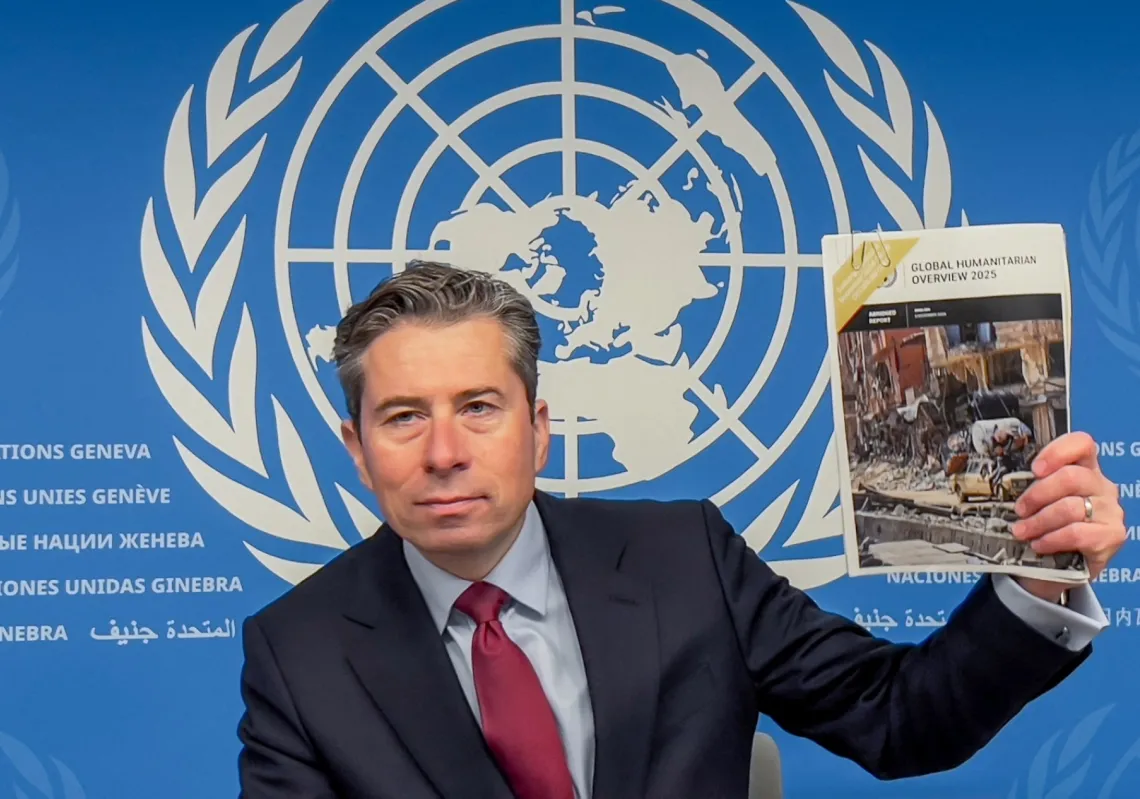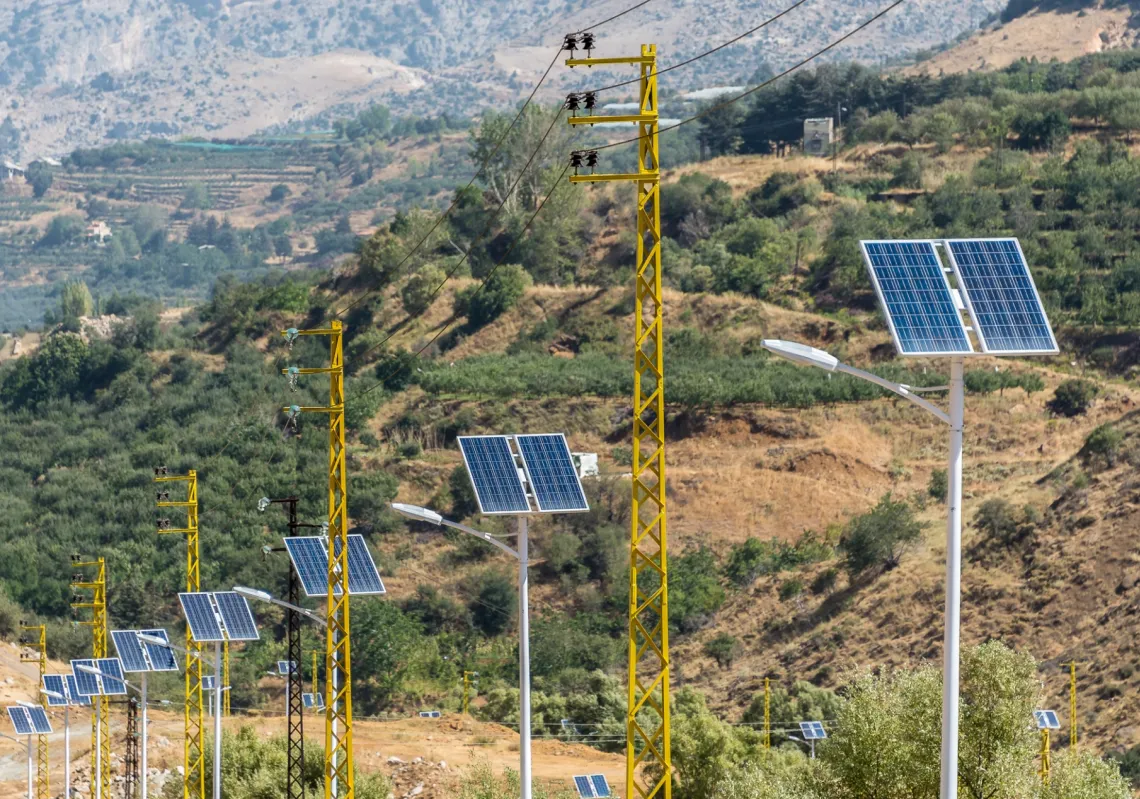 Muslim brotherhood leader Mohammed Badie meets with U.S. Ambassador to Egypt Anne Patterson in Cairo in 2012.[/caption]
Muslim brotherhood leader Mohammed Badie meets with U.S. Ambassador to Egypt Anne Patterson in Cairo in 2012.[/caption]
Since the Egyptian Revolution of 1952, America’s relationship with the Muslim Brotherhood has been driven by American interests in Egypt. Only during a brief period at the start of the Cold War and following the Soviet invasion of Afghanistan in 1979 did Washington actually seek to engage the Brotherhood directly, and only then as a tool in the fight against Moscow.
[inset_left]while the Arab Spring has created momentous, historic changes in the Middle East, some features of politics in the Arab world remain unchanged.[/inset_left]Nonetheless, while the Arab Spring has created momentous, historic changes in the Middle East, some features of politics in the Arab world remain unchanged. One of these is the obsession with the operation of sinister forces behind the scenes, most notably the machinations of the US government and the Central Intelligence Agency (CIA). Accusing one’s political opponents of being CIA puppets has proven to be a popular tactic in the past and now, with the rise of Mohammed Morsi to the presidency of Egypt, the Muslim Brotherhood has become a target of rumors accusing them of being agents of American power.
An examination of the initial US response to the Arab Spring shows that it was actually caught completely off guard by the tumultuous events in Tunisia and Egypt. Contrary to claims that it was working behind the scenes to bring about Mubarak’s downfall, the US was slow to respond to crises which unfolded very quickly.
Since coming to office in July, Morsi has been subject to attacks from his opponents—many of whom conveniently ignore their own background in the Egyptian military and Mubarak-era political elite, which historically maintained strong ties to the US—that imply that he is an agent of the US government. These attacks are simply part of the power struggle in Egypt. In parallel, there have been outbursts of paranoia within the US about Brotherhood ‘infiltration’ of the US government (and society) that eerily mirror the rumors in Egypt, and are reminiscent of Senator Joseph McCarthy’s notorious witch-hunts of the 1950s.
A Brief History of the US and the Muslim Brotherhood
There is considerable evidence to show that since the early 1950s, the US has periodically maintained contacts with the Brotherhood, depending on its perceptions of the political outlook of Cairo and the state of its relations with Nasser and subsequent Egyptian rulers.
When the Free Officers’ Movement overthrew the dissolute King Farouk in 1952, the Brotherhood initially aligned itself with the new regime, which had promised to cater to its desires for a more equitable system of governance that also incorporated Islamist views. At the time, the Eisenhower administration—eager to establish good relations with Egypt, the Arab world’s most populous nation and site of the strategically vital Suez Canal—sought to win over all major sources of power inside Egypt, including the Muslim Brotherhood.
[caption id="attachment_55233891" align="alignright" width="300"]
 President Eisenhower meets with Islamic scholars, including Said Ramadan[/caption]
President Eisenhower meets with Islamic scholars, including Said Ramadan[/caption]
In 1953, a delegation of Islamist scholars, including Said Ramadan, the son-in-law to the Brotherhood’s founder, Hassan Al-Banna, traveled to the US under the pretext of attending a “Colloquium on Islamic Culture” at Princeton University. Robert Dreyfuss, an investigative journalist and author of Devil’s Game: How the US Unleashed Fundamentalist Islam, quotes a declassified US document that explained the purpose of the conference: “On the surface, the conference looks like an exercise in pure learning. This in effect is the impression desired.” However, the document maintains that the objective was to “bring together persons exerting great influence in formulating Muslim opinion in fields such as education, science, law and philosophy and inevitably, therefore, on politics....”
Viewed through today’s lens, bringing together a colloquium of Islamist scholars in the US might appear odd. But in 1953 the fundamental driving force of US policy was anti-communism, a position shared by the Muslim Brotherhood. Indeed, as Ian Johnson, a Pulitzer prize-winning journalist and author of A Mosque in Munich, which examined the early links between US intelligence and the Muslim Brotherhood, points out, “Ramadan, like others in the Muslim Brotherhood, strongly opposed communism for rejecting religion” and this, in turn, “made him a natural ally of the US.” It seems that another purpose of the conference was to sound out Islamists—like the Brotherhood—to see if they could be useful US allies in the Cold War. Indeed, as Talcott Seelye, a US diplomat who has been stationed throughout the Middle East, told Dreyfuss, “We thought of [political] Islam as a counterweight to communism…. We saw it as a moderate force, and a positive one.” Given this, it was not surprising that following the conference, a professor from Princeton and a senior official at the Library of Congress arranged for the fifteen delegates, including Ramadan, to visit the White House on 23 September, where they met with President Eisenhower and posed for a photograph in the Oval Office. Unfortunately, beyond this brief visit, there is no other information available that documents what else occurred during Ramadan’s stay.
The relationship between the Muslim Brotherhood and Nasser, on the other hand, quickly soured after some initial cooperation. As Dreyfuss points out, “The Brotherhood saw Nasser as a hateful secularist who had abandoned Islam and who was too willing to cooperate with communism—beliefs that endeared them to both London and Washington.” This divergence of views meant that before long Nasser and the Brotherhood would have a falling out, especially since Nasser refused to cater to its wishes. The tension between the two came to a head on 26 October 1954, when a member of the Brotherhood tried unsuccessfully to assassinate Nasser. In the aftermath, the regime declared the Brotherhood illegal and arrested many of its leaders. He would later order that the organization’s chief ideologue, Sayyid Qutb, be hanged in 1966 after a show trial, despite having offered him a ministerial post after the 1952 revolution.
[inset_left]The relationship between the Muslim Brotherhood and Nasser, on the other hand, quickly soured after some initial cooperation.
[/inset_left]
Ramadan fled to Switzerland following Egypt’s crackdown on the Brotherhood in 1954. He set up the Islamic Centre of Geneva that would serve as a hub for the Brotherhood’s international activities, and then went on to West Germany. His activities were largely unknown until July 2005, when Johnson wrote an article in the Wall Street Journal that was based on archival research that suggests that Ramadan worked with the CIA. In the article, Johnson reveals that “the Muslim Brotherhood formed a working arrangement with US intelligence organizations” but before long the “US lost its hold on the movement.” Nevertheless, German documents show that the US persuaded Jordan to issue Ramadan a diplomatic passport and that “his expenditures are financed by the American side.” Swiss archives also confirm that Ramadan worked for the US: “Said Ramadan is … an information agent of the British and Americans.” Nevertheless, following West Germany’s refusal in December 1963 to allow Ramadan to participate in a CIA propaganda campaign against the Soviet Union, evidence of the CIA’s involvement with Ramadan dries up.
When Nasser died in September 1970, his successor, Anwar Sadat, took a very different approach to ruling Egypt’s fragmented society, which had been devastated both militarily and economically through war with Israel. On top of this, Sadat found himself opposed by both Nasserist and communist factions that disapproved of his policies. This meant that Sadat’s most logical ally in the country was the Brotherhood. As a result, he gradually began to release members that had been jailed under Nasser. But whatever support Sadat had gained through his overtures to the Brotherhood was wiped out when he signed the Camp David peace accords with Israel.
Not only did the Egypt-Israel peace agreement shatter Sadat’s relationship with the Brotherhood, it also entrenched a growing view inside the US government that the Brotherhood was not only an obstacle to peace but also a danger to American interests. This appeared to be confirmed in September 1981, when sectarian clashes erupted in Cairo that led Sadat to order a crackdown. On 6 October—only a month later—a radical Islamist terrorist group not connected with the Brotherhood, Egyptian Islamic Jihad, assassinated Sadat at a military parade.
Sadat’s toleration of the Brotherhood continued under his successor Hosni Mubarak, at least at first. Like Sadat, Mubarak did not have a power base, and he needed the Brotherhood in order to work toward national reconciliation. This was evident in Mubarak’s release of many of the political prisoners detained after the September 1981 riots. While Mubarak was always careful not to get too close to the Brotherhood, he did allow them to participate in parliamentary elections as independents. But when the Brotherhood fared particularly well in the 1987 election, winning 36 seats, Mubarak had the courts declare the results null and void and blocked them from participating in the political process. In response, the Brotherhood simply turned its attention to trade syndicates, where it found considerable support. This, in turn, led to another crackdown in the mid-1990s, when the Egyptian government introduced new measures to dilute the power of officials affiliated with the Brotherhood in some syndicates, and simply took over others by installing government ‘guardians.’
[caption id="attachment_55233894" align="alignright" width="300"]
 Sayyid Qutb behind bars in an Egyptian prison[/caption]
Sayyid Qutb behind bars in an Egyptian prison[/caption]
Throughout the 1980s, Islamists, like those in the Muslim Brotherhood, took on new relevance for the Reagan administration’s cold warriors following the Soviet invasion of Afghanistan in December 1979. Throughout this period, the CIA and Pakistani intelligence worked closely with the Muslim Brotherhood’s Pakistani branch, Jamaat-e-Islam, to keep the Red Army tied down inside Afghanistan. In spite of criticism that the US operation helped unleash the forces of radical Islam that led to the creation of Al-Qaeda, influential US policymakers still view the operation as a major success. Years later, a journalist from Nouvel Observateur asked Zbigniew Brzezinski, President Carter’s National Security Advisor, if he regretted the Afghanistan operation. He answered, “Regret what? The secret operation was an excellent idea.... What is more important in world history? The Taliban or the collapse of the Soviet empire? Some agitated Muslims or the liberation of Central Europe and the end of the Cold War?”
But regardless of its ties to Islamic militants in Afghanistan, the US remained cautious with respect to Egypt, lest it upset the delicate balance of forces that kept Egypt’s peace agreement with Israel intact. In the end, America’s fear of upsetting the Egypt-Israel peace would be the driving force of US policy toward Egypt until the waning days of the Mubarak regime. Diplomatic cables from the 1980s and 1990s, made available through WikiLeaks, tell us that the US Embassy in Cairo sought to maintain limited contacts with the Brotherhood, while in turn the Brotherhood, fearful of bad publicity and a government backlash, asked American diplomats to obtain official permission for future meetings. Later, it became US policy to restrict diplomatic contacts to Brotherhood members who were sitting members of parliament or officials of professional syndicates in order to comply with the letter of the law, if not its spirit. As one cable from 1999 explains, “We call on them in their capacities as syndicate leaders, not as members of a banned group.” The cables also display a considerable degree of skepticism regarding the Brotherhood’s intentions and motives, hinting in many instances that American diplomats suspected that the organization’s public commitment to non-violence, democracy, and equality for Egypt’s Copts was only a façade.
This would not change much under President George W. Bush. After 9/11, the Bush administration adopted an ambitious agenda of democracy promotion throughout the Middle East. However, the Brotherhood’s great electoral success in Egypt’s 2005 elections—where they won approximately 20 percent of seats, up from 3 percent in the 2000 elections—and Hamas’s victory in the Palestinian territories a few months later, proved quite embarrassing to the US and slowed its push for democracy in the region. Like previous administrations, when faced with a choice between national interests in maintaining the status quo and the promotion of democracy, the former has always been paramount. It would take the events of 2011 to turn decades of American policy on its head.
An “Orderly Transition”
American pressure to oust Mubarak and advocacy for democratic change in the midst of the Arab Spring has stoked suspicions in some quarters. Nonetheless, despite recent accusations that the US has been secretly supporting the Muslim Brotherhood, that key US officials are “sympathetic” to the Brotherhood’s aspirations or have links to Islamic organizations, and that the Obama administration secretly financed Morsi’s presidential campaign, we should take claims of this nature with a grain of salt. It is worth recalling the ponderous US response to the outbreaks of the uprisings against Tunisia’s Zine El-Abidine Ben Ali and Egypt’s Hosni Mubarak.
[inset_left]American pressure to oust Mubarak and advocacy for democratic change in the midst of the Arab Spring has stoked suspicions in some quarters. [/inset_left]
The US was caught completely off guard by the Tunisian and Egyptian uprisings, though there were certainly indicators that unrest could occur in Tunisia, thanks to the corruption of Ben Ali’s family and senior officials. There was no way anyone could have known that the tragic death of a young Tunisian man, Mohammed Bouazizi, who set himself on fire on 17 December 2010 in protest at the confiscation of his fruit cart by municipal officials, would be the spark that set off a chain of events that shook the world. By the time Bouazizi died of his wounds in early January 2011, few in Washington truly understood the implications of what was taking place in Tunisia. As word of Bouazizi’s self-immolation spread, anti-government riots broke out across Tunisia. It was not until 7 January that the US acknowledged the unrest, calling in the Tunisian ambassador to criticize his government’s handling of the riots and urge restraint. Despite the timing, it was likely pure coincidence that US Secretary of State, Hillary Clinton, traveled to Qatar amid the unrest, and gave a speech that pressed Arab leaders to “further open their political systems,” since it had become clear that progress toward reform had “stagnated.”
Meanwhile, the situation inside Tunisia was deteriorating rapidly, with the New York Times reporting on 11 January that as many as fourteen people had been killed. This prompted the State Department to reiterate to the Tunisian government the Obama administration’s “concerns not only about the ongoing violence, the importance of respecting freedom of expression, but also the importance of the availability of information.” But the violence continued and by 13 January an additional sixteen people had been killed, prompting Ben Ali to indicate that he would step down at the end of his term. This was not enough. That day, the Tunisian military made it clear that it would not put down the uprising by force. Abandoned by the military, Ben Ali fled into exile with his family.
The US government was shocked, and before long President Obama criticized the CIA for failing to predict the uprising in Tunisia and Ben Ali’s abrupt departure. According to American journalist Mark Mazzetti, US officials “focused their criticism on intelligence assessments last month [January 2011] that concluded, despite demonstrations in Tunisia, that the security forces of President Zine El-Abidine Ben Ali would defend his government,” but this clearly did not happen. Indeed, as one US official observed, “Everyone recognized the demonstrations in Tunisia as serious ... What wasn’t clear even to President Ben Ali was that his security forces would quickly choose not to support him.” Indeed, US officials were open about how surprised they were by Ben Ali’s departure, with Admiral Mike Mullen, the Chairman of the Joint Chiefs of Staff, admitting on The Daily Show on 3 February that Ben Ali’s overthrow had “taken not just us, but many people, by surprise.” Going further, Mullen said, “To a great degree I think the timing of it certainly caught us [by surprise]—as [unrest] moved from Tunisia … to the really difficult challenge that is there right now in Egypt.”
[caption id="attachment_55233895" align="alignright" width="300"]
 Members of the Muslim Brotherhood movement [/caption]
Members of the Muslim Brotherhood movement [/caption]
The contortions of the US government during the uprising against Mubarak were even more convoluted, with positions shifting rapidly as events unfolded, forcing the US to try to catch-up with them once again. Spurred on by the success of the protesters in Tunisia, demonstrations against Hosni Mubarak and his government gathered momentum throughout late January, prompting the US to call for calm while urging the Egyptian government to respect the rights of its citizens. As Mark Lander observed in the New York Times on 25 January, before the protests in Egypt had begun, “An uprising in Tunisia, a peripheral player in the region, is not the same as one in Egypt, a linchpin. The Egyptian government is a crucial ally to Washington, but the population is very suspicious of American motives, and the potential for Islamic extremism lurks.”
After a period of uncertainty in which the White House (along with everyone else) was a spectator to the events in Egypt, Obama eventually concluded that Mubarak was doomed. During this time, the administration shifted its position from warning the regime against the use of violence to calling for an “orderly transition” without calling for Mubarak’s resignation outright, then changing again to hinting that he should quit.
At the end of January 2011—after the Egyptian president stated he would remain in office until September—Obama dispatched Frank Wisner, a former ambassador to Egypt, to Cairo to convey the administration’s view that Mubarak had to begin an “orderly transition.” But, as Josh Rogan pointed out in Foreign Policy, while in Cairo Wisner did not quite deliver the message the Obama administration had hoped he would convey. On 5 February, Wisner told a security conference in Munich (at which Secretary Clinton was in attendance), “We need to get a national consensus around the pre-conditions for the next step forward. The president [Mubarak] must stay in office to steer those changes.” The US began to distance itself from his comments almost immediately, especially since Obama had declared in a speech on the Egyptian crisis on 1 February that an “orderly transition must be meaningful, it must be peaceful, and it must begin now.”
Obama’s call for Mubarak to step down was followed by a major escalation of the situation in Egypt as pro-government thugs, riding horses and camels, attacked Tahrir Square with clubs, machetes, and swords, leading to a pitched battle in the street. According to the New York Times, as many as 600 people were injured and three killed during the fighting. Faced with this unexpected display of violence, which was broadcast throughout the world, White House Press Secretary Robert Gibbs clarified how the administration felt about the situation: “I want to be clear ... ‘now’ started yesterday.” But the administration’s call for an “orderly transition” went unheeded.
By 3 February, the Obama administration was convinced that Mubarak was finished and pressed him to hand over power to the newly-appointed vice president and former intelligence chief, the late Major General Omar Suleiman, who had the support of the military. The plan was for Suleiman to take over as president, set up a transitional government, and move forward with reforms that would eventually lead to the creation of a representative democracy. But as history shows, things never go according to plan. Mubarak still refused to relinquish power and seemed determined to remain as president until September, when elections were proposed. This plan, especially in light of the excessive violence used in Tahrir Square, underscored just how out of step the US was with the protesters, who were at this point even more vehement in their calls for an entirely new system.
[inset_left]he US realized that a democratic Egypt would almost certainly include dealings with the Muslim Brotherhood, which was the country’s largest and most organized opposition group.[/inset_left]
At the same time, the US realized that a democratic Egypt would almost certainly include dealings with the Muslim Brotherhood, which was the country’s largest and most organized opposition group. As the New York Times pointed out on 4 February, “If Egyptians are allowed free and fair elections, a goal of the Obama administration … they will have to deal with the real possibility that an Egyptian government might include members of the Muslim Brotherhood.” This realization deepened an existing problem for the US: the conflict between the longstanding American ideals of democracy and freedom and the national interest of ensuring stability in Egypt, a key part of US Middle East strategy. At the same time, the US was under immense pressure from key regional allies in the Middle East to “go slow” on Egypt. This was largely because they feared that if elections were held the Muslim Brotherhood would seize control of the country, upend Egypt’s thirty five-year-old peace agreement with Israel, and further destabilize the region.
On the morning of 10 February, the Egyptian government announced that Mubarak was going to deliver a public statement that evening, prompting widespread speculation that he was going to step down. But when millions of viewers around the world tuned in to hear his speech, they were disappointed to find a belligerent Mubarak who promised to “delegate authority” to Suleiman but would not resign. The protesters in Tahrir Square were outraged, with many predicting that extreme violence could occur the next day. George Ishak, an Egyptian opposition leader, commented that night, “Can this man be serious or did he lose his mind? People will not go home and tomorrow will be a horrible day.”
Recognizing this, that evening the Supreme Council of the Armed Forces (SCAF) released a statement entitled “Communique No. 1.” that said: “In affirmation and support for the legitimate demands of the people,” the SCAF convened “to consider developments to date … and decided to remain in continuous session to consider what procedures and measures that may be taken to protect the nation, and the achievements and aspirations of the great people of Egypt.” At the time, observers believed that this statement suggested that a military coup was about to take place. While there is uncertainty as to what actually happened behind the scenes on the night of 10-11 February, the next day Suleiman held a press conference in which he announced that Mubarak had stepped down and had transferred his executive powers to the SCAF, led by Field Marshal Hussein Tantawi. The SCAF also released a statement stating that it would lift the emergency law as soon as stability returned, was committed to “undertaking the legitimate demands of the people,” and would not “prosecute honorable people who refused corruption and demanded for reform.”
When word of Mubarak’s downfall reached Washington, Obama gave a televised address in which he said, “Egyptians have made it clear that nothing less than genuine democracy will carry the day ... It was the moral force of nonviolence—not terrorism and mindless killing—that bent the arc of history toward justice once more.” Obama then called on the military to lift the emergency law, revise the constitution, and lay out a path to free and fair elections. It was clear that SCAF had taken the initiative and the US was responding to its actions, not the other way around.
President Obama and the rest of the US government were caught off guard by the downfall of Mubarak, who had ruled for almost thirty years and looked set to continue despite the problems Egypt faced. As the uprisings against Mubarak gathered pace, the administration raced to keep up with events on the ground, and at several junctures found itself blindsided by developments. While the US retains some leverage over Egypt and the Egyptian military—thanks to its enormous aid program—it proved itself to be far from an all-powerful puppet master, pulling the strings behind the scenes.
The Defamation Game
The omnipresent reach of the CIA and its ability to manipulate events in the Middle East from its secluded headquarters in Langley, Virginia, is a staple of conspiracy theories across the Arab World and Iran, revealing a deep anxiety about the role of unaccountable, foreign forces in the lives of its residents. But how much power do the CIA and the US government actually wield? The answer is not a comforting one for those who either blame the US for many of the ills that plague the Middle East or who hope the US can use its influence to solve them.
Although the US intelligence budget is huge, reaching almost $80 billion in 2011, the CIA and the other American intelligence agencies and organizations are not omnipotent, and are by no means all-seeing and all-knowing. At the same time that the uprisings against Mubarak, Ben Ali, and other leaders were shaking the Arab World, the CIA, the Defense Intelligence Agency (the Pentagon’s own intelligence organization) and other intelligence organs had their hands full with the withdrawal from Iraq and the ongoing war in Afghanistan, both of which exposed serious weaknesses in the American system of intelligence-gathering and analysis. America’s spies were also preoccupied with foiling Al-Qaeda plots, tracking down and killing Osama Bin Laden, monitoring drone wars in Afghanistan, Pakistan, Somalia, and Yemen, and with keeping tabs on Iran’s efforts to acquire and develop its nuclear technology. This is to say nothing of the reorientation, or ‘pivot,’ of American strategy towards East Asia in recognition of the rising power of China. Indeed, because North Africa had been relatively stable in the decade preceding the Arab Spring, it is understandable that Washington would not have allocated a significant amount of resources when other regions were perceived to pose greater challenges to American interests.
[caption id="attachment_55233896" align="alignright" width="223"]
 Uncle Sam[/caption]
Uncle Sam[/caption]
Due to the fear of unaccountable American power behind the scenes and its deep unpopularity throughout the Middle East, the accusation of being ‘in America’s pocket’ has become a popular means of attacking one’s opponents. Egypt has been a prominent example. That Mubarak had sold Egypt out to America was a common theme of much of the discourse of his opponents. Mubarak, in turn, used the same line when he needed to deploy a good smear. For instance, WikiLeaks cables released in November 2010 contain a series of dispatches from 2005 in which US diplomats stationed at the US embassy in Cairo report on their investigations into rumors that the Muslim Brotherhood was receiving American funds. The cables also deal with media reports that the Brotherhood was mulling establishing a direct dialogue with Washington at the urging of the Department of State. They concluded that the rumors and leaks were attempts to undermine the Brotherhood as part of a wider “showdown” between the movement and Mubarak’s government.
During the Cold War, the CIA had hoped to use the Muslim Brotherhood and other Islamists against communists throughout the Middle East. This connection would obviously not have survived the collapse of the Soviet Union, even if it had endured that long. As Wayne White, a former intelligence analyst at the State Department’s Bureau of Intelligence and Research and now a scholar at Washington, D.C.’s Middle East Institute (an independent think tank), puts it: “Any effort to guide or direct the Muslim Brotherhood would be an exercise in self-delusion ... The Muslim Brotherhood doubtless has had, at least for the past three or four decades or so, a healthy suspicion of Washington.” Other observers of the Muslim Brotherhood agree. For instance, Ian Johnson told The Majalla that accusations of links with the CIA have “been a stock way to defame the Muslim Brotherhood over the decades. Starting with Nasser it's been a popular way to attack it—say it's in cahoots with the American (and by extension Zionist) global conspiracy.”
Former officials in the US government deny that the US ever sought to influence the Muslim Brotherhood. Indeed, the former Assistant Secretary of State for the Near East, Richard Murphy, said that he could not recall any official connections between the CIA and the Brotherhood during his time at the State Department. Similarly, Tom Twetten, who was the chief of the CIA’s Egypt/Libya branch during the mid-1970s and later rose to be Director of Operations in the 1990s, also denied that the White House had ever authorized any effort to influence the Brotherhood. Twetten explained: “If policy makers … want the CIA involved in [an] influence [operation], it requires a written document called a ‘finding’ which sets out the goals, limitations, and rationale for CIA attempted action ... I can assure you with some authority that there was no ‘finding’ or discussion of influence on or with the Muslim Brotherhood from 1974 to my retirement in 1995. Nor do I recall any mention of such a program before 1974.” However, a distinction needs to be made between attempting to influence an organization and spying on them, which is the CIA’s job. Indeed, as another intelligence analyst concedes, “The CIA had sources within some Islamist organizations because it generated a respectable amount of clandestine reporting about them that reflected ‘insider’ information.”
[inset_left]the former Assistant Secretary of State for the Near East, Richard Murphy, said that he could not recall any official connections between the CIA and the Brotherhood during his time at the State Department.[/inset_left]
Within Egypt, criticism of links between the Brotherhood and the US continues today. Now that the group, in the guise of the Freedom and Justice Party (FJP), is in control of some of the levers of power in Egypt, its opponents have an added incentive to try to cut it down to size and undermine its reputation. During Secretary Clinton’s visit to Cairo in July, newspaper columnist Ahmed Moussa criticized President Morsi and the FJP for not being critical enough of what he sees as US interference in Egypt’s internal affairs, arguing that the US has changed from the “Great Satan” to an “ally” in the eyes of the FJP/Brotherhood. Significantly, he claims that the alleged collusion between the two is a “conspiracy” aimed at undermining the Egyptian military’s authority. His concerns were echoed by protesters who turned out to pelt Clinton’s car with shoes and tomatoes as she left the US consulate in Alexandria. Many of them brandished placards accusing the US of funding the Muslim Brotherhood.
In the US, an oddly parallel process is underway, with some public figures using accusations of collusion with the Muslim Brotherhood to attack the character and loyalty of their opponents. On 13 June, five members of Congress, including Michele Bachmann, wrote to the State Department’s Office of the Inspector General to question why Hillary Clinton’s long-time aide, Huma Abedine, had been given a security clearance, given that her parents and brother had alleged links to individuals and groups associated with the Brotherhood. The allegations were met with a furious response from other lawmakers, including Senator John McCain, who took the floor of the Senate to denounce the letter, saying, these “sinister accusations … have no logic, no basis and no merit.” McCain described Abedine as “a friend” and implied that these claims closely mirrored those of Senator Joseph McCarthy during the “Red Scare” of the 1950s, when US officials—particularly from the State Department—were dragged before Congress to defend themselves against accusations of collusion with the Soviet Union.
But the Muslim Brotherhood and State Department are not the only ones being accused of nefarious dealings. In July, Al-Dostour, an Egyptian tabloid owned by a Christian businessman and a strong supporter of the military, dedicated half its front page to a story headlined ‘Aftershocks of the Group’s [Muslim Brotherhood] scandal with the Americans’, which claimed that Congressman Frank Wolf of Virginia had provided the US Congress with a legal document proving the Obama administration had bankrolled the Muslim Brotherhood to the tune of US$50 million during the second round of Egypt’s presidential elections. When The Majalla contacted Congressman Wolf’s office in Washington, his spokesman denied any knowledge of this. Wolf has travelled to Egypt twice, most recently in June 2011, and he had met with Mubarak and senior Egyptian officials where he raised his concerns for the rights of religious and ethnic minorities in the Middle East. Indeed, Wolf’s public support for Coptic Christians is likely to have raised his profile inside Egypt, making him an easier target for this kind of accusation. As for the claim itself, it seems to be another example of a campaign that is attempting to smear Morsi by suggesting that he is an agent of the US government. Taken together, it appears that both Congressman Wolf—and the US more generally—were drawn into an escalating propaganda campaign aimed at undermining Morsi’s credibility among the Egyptian people. (It is important to note that in mid-August 2012 the Egyptian government charged Al-Dostour with insulting Morsi and inciting sectarian discord.)
Given the struggle over power that lurks in Egypt’s future, nothing in the way of political chicanery can be ruled out at this stage. Together with the fervor with which some elements of the Egyptian media trumpet rumors and conspiracy theories, this means that accusations of collusion with the US will likely recur as soon as it becomes useful to make them. But the body of evidence presented here suggests that barring a brief flirtation with the Brotherhood during the early stages of the Cold War, the US has never held influence over the Muslim Brotherhood. In fact, since the Egypt-Israel peace agreement of 1979, the only influence the US has ever had in Egypt lies with those who have been most at odds with the Brotherhood: the Egyptian military. In any event, American influence behind the scenes, wielded by the president, the CIA, the State Department, or any other agency, cannot possibly live up to the hype.









